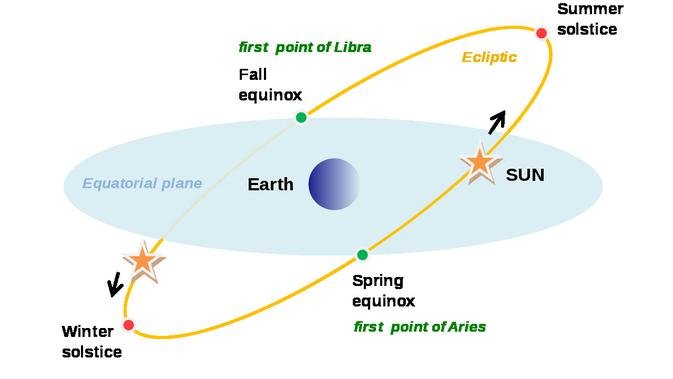
It has been long since scientists explain that the Earth's position is not perpendicular in the solar system, but it tilts about 23.44 degrees. This condition causes a change of seasons on some continents.
When the Earth's position is close to the sun, summer occurs in the northern hemisphere and winter in the south. While tilted again, the situation is reversed.
The summer solstice is when the northern hemisphere is at the most extreme angle toward the sun, whereas the winter solstice, the furthest distance, the rest are spring and fall.
Twice a year, Earth experiences a vernal equinox phenomenon (vernal equinox) or Spring Spring point that marks the start of an astronomical spring. This point occurs around March 20 in the northern hemisphere and September 23 in the southern hemisphere.

In the Northern Hemisphere, astronomers and scientists use the equinox that occurred in March as a marker of the start of spring. The season ended at the end of the Sun's turning point in June, when the summer began.
Meteorologists say the spring in the northern hemisphere lasts three weeks before the March equinox takes place, around March 1, and ends on May 31, as quoted from the Big Think site on Monday (19/3/2018).
According to conventional knowledge, when equinoxes occur all regions of Earth experience day and night with the same length of time, with each time 12 hours. If judging from the origin he said, equinox comes from two Latin words, ie aequus which means the same, and nox which means night.
No Shadows?

But based on reality, many places on Earth last longer during the equinox. This happens because of two things, namely the definition of sunrise and sunset, and the refraction of the atmosphere from sunlight.
The vernal equinox point is also called the Aries Point and is the reference point for the celestial coordinates. All the star coordinates, in equatorial systems, are calculated from this point.
For those who are on the equator or equator at 12:48 pm local time, the sun will be just above the head and the sunlight is falling perpendicular to the ground. So the resulting image is like nothing.
Vote for busy As Witness
#busy #zappl #good-karma #esteemapp #esteem #steepshot #steemit #minnowsupport
